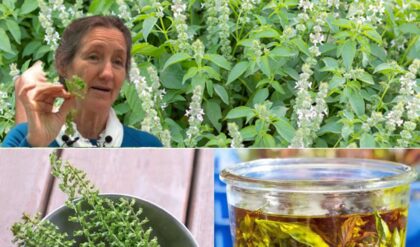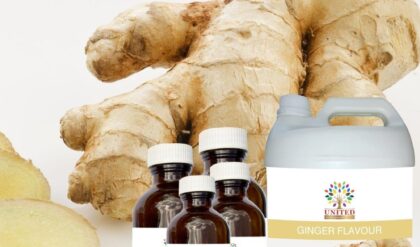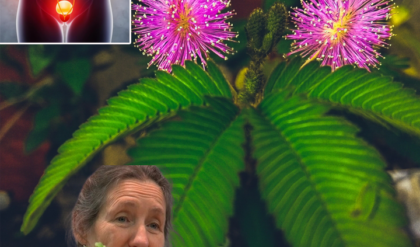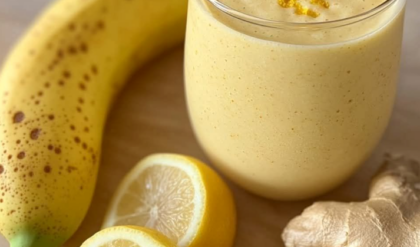Euphorbia hirta, commonly known as the asthma plant, is a powerhouse of medicinal benefits, widely used in traditional medicine for its diverse health properties. From enhancing respiratory health to supporting digestion and skin care, this plant offers a range of therapeutic advantages. Here’s a deep dive into the incredible health benefits of Euphorbia hirta and how you can incorporate it into your wellness routine.

1. Immune System Boost and Respiratory Health
Euphorbia hirta is known for its ability to strengthen the immune system, helping the body fight infections and diseases. It has earned the nickname “asthma plant” due to its effectiveness in alleviating respiratory issues. The plant aids in clearing airway congestion, reducing inflammation in the lungs, and providing relief for conditions such as asthma, bronchitis, and chronic cough.
2. Anti-Inflammatory and Antiparasitic Properties
One of the standout benefits of Euphorbia hirta is its strong anti-inflammatory action. It is particularly useful in treating conditions such as arthritis, gout, and joint pain by reducing swelling and discomfort. Additionally, its natural antiparasitic properties make it effective against intestinal parasites like tapeworms, which can cause digestive distress.
3. Gastrointestinal Health and Digestive Support
Euphorbia hirta, also known as Tawa-tawa, has been used to treat a variety of stomach-related issues, including:
- Constipation – Helps regulate bowel movements.
- Diarrhea & Dysentery – Possesses antimicrobial properties that aid in fighting infections.
- Stomach Aches – Contains flavonoids and alkaloids that help soothe an irritated digestive system.
Its anti-inflammatory compounds help protect the gastric lining and promote overall gut health.
4. Sexual Health and Skin Benefits
This plant has been traditionally used to enhance sexual health, particularly in boosting libido and treating venereal diseases. Additionally, it is known for its skin-healing properties, making it useful for treating burns, wounds, and rashes. By stimulating blood circulation and cell regeneration, it promotes faster healing and improves skin texture.
5. Wound Healing and Antioxidant Effects
Euphorbia hirta has been applied topically for wound healing due to its antibacterial and anti-inflammatory properties. The sap or crushed leaves help reduce infections and inflammation, promoting quicker recovery. Its rich antioxidant content also helps fight free radicals, slowing down signs of aging and improving overall skin health.
6. Natural Pain Relief (Analgesic Properties)
The plant has been found to have natural analgesic effects, making it useful for alleviating various types of pain, such as:
- Headaches
- Toothaches
- Menstrual cramps
Drinking Euphorbia hirta tea or applying it topically can help manage pain naturally without the need for synthetic painkillers.
7. Potential Antimalarial Properties
Scientific studies suggest that Euphorbia hirta may have antimalarial properties, which is particularly beneficial in regions where malaria is prevalent. The plant’s compounds may help combat Plasmodium parasites responsible for the disease, making it a valuable natural remedy.
How to Use Euphorbia Hirta

There are several ways to prepare and use this medicinal plant:
- Tea or Infusion – Boil dried leaves and stems to make a health-boosting herbal tea.
- Topical Application – Apply fresh sap or crushed leaves directly to wounds, rashes, or skin infections.
- Capsule or Powder Form – Dried and ground leaves can be stored and used in medicinal formulations.
Precautions and Possible Side Effects
While Euphorbia hirta provides numerous health benefits, it should be used with caution. Some potential side effects include:
- Stomach irritation – May cause digestive discomfort if consumed in high doses.
- Skin reactions – Can lead to irritation or allergic reactions in sensitive individuals.
- Pregnancy concerns – Pregnant women should avoid using this plant as it may increase the risk of miscarriage.
Final Thoughts
Euphorbia hirta is a versatile plant with a wide range of medicinal applications. Whether used for respiratory health, digestive support, or pain relief, its natural properties make it a valuable addition to herbal medicine. However, it is always best to consult with a healthcare professional before using it for medicinal purposes, ensuring safe and effective application.





